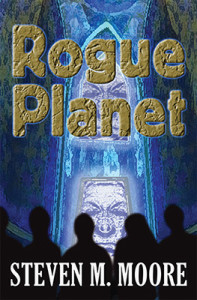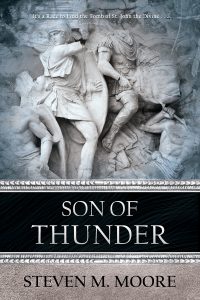The influence of Hamlet…
As I was watching PBS’s “Shakespeare Uncovered” analysis of Hamlet a while ago, I realized how much that play has influenced writers. Revenge is a common plot device, and often, like in Hamlet, it doesn’t turn out well for the avenger. Hamlet’s moralistic dilemma so aptly portrayed by Shakespeare (for example, Hamlet can kill his uncle in one scene, but refrains from doing so when the uncle is praying, thinking that will send his father’s assassin to heaven instead of hell). But in other works, protagonists handle similar moralistic dilemmas well, so, even if the antagonist is killed, readers feel s/he deserves it.
Examples of the play’s influence abound. For example, this might be something we’ve missed about Star Wars in the first three movies of the series: Luke Skywalker is Hamlet; Darth Vader is the evil uncle, even though he’s really Luke’s father; and Obi-Wan has the role of Hamlet’s father (a ghost after Vader slays him). And Luke is avenging the slaughter of his aunt and uncle by Vader’s troopers. I for one would have never come up with that interpretation without that PBS show! (Of course, Star Wars also borrowed a lot from Edgar Rice Burroughs and Isaac Asimov.)
I also realized after that PBS show that Hamlet has influenced me, in my own Rogue Planet and A. B. Carolan’s Mind Games, for example. Mind you, the last time I read Hamlet was long ago in a Shakespeare course I took as an undergrad at UCSB. But I now realize my unconscious played a trick on me, at least in those two books.

Rogue Planet features the son of a murdered king who must save his people from a brutal and oppressive theocracy. The role of the uncle in Hamlet is assumed by the religious leader (any similarities to current and similar 21st century theocrats are intentional, of course).
In Mind Games, and also in a sci-fi context, a young girl assumes the role of Hamlet who strives to find her adopted father’s murderer. The antagonist, who’s not known at the beginning (a break with Hamlet because it’s a YA sci-fi mystery), plays the role of the evil uncle.
All these examples are variations on Willy’s famous play about assassination and revenge. And my analysis of these examples (you probably can think of many others) never would have occurred without that PBS show. Thank you, PBS and the foundations who sponsor the series!
***
Comments are always welcome!

Son of Thunder. This sequel to Rembrandt’s Angel from Penmore Press has Esther Brookstone in trouble again. She become obsessed with finding the tomb of St. John using directions she finds in the frame of a painting by Renaissance artist Sandro Botticelli. Three parallel stories occur—the first about St. John’s missionary work (first century), Botticelli’s own hunt for the tomb (Renaissance), and Esther’s search (twenty-first century). They are all brought together by the end of the novel. Available in print and ebook format at Amazon and the publisher and ebook format at Smashwords and all its affiliated retailers (iBooks, B&N, Kobo, etc.). Also available at your favorite bookstore (if they don’t have it, ask them to order it).
Around the world and to the stars! In libris libertas!

November 5th, 2019 at 8:48 am
Hamlet is a very complex play. I never considered Star Wars in a similar context, but this interpretation is a good one. Revenge plots have been popular through the centuries, even in Greek tragedy.